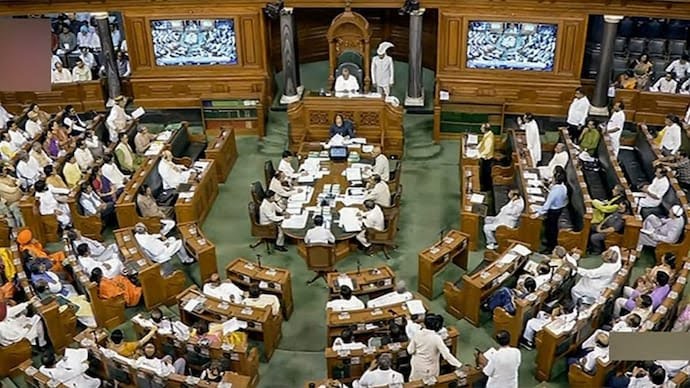The Lok Sabha approved the Public Examinations (Prevention of Unfair Means) Bill, 2024 on Tuesday, February 6. This bill aims to combat unfair practices during public examinations and common entrance tests nationwide.
The bill aims to deal with malpractices and irregularities in government recruitment examinations by introducing provisions, including the possibility of a maximum jail term of 10 years and fines up to Rs 1 crore.
Once passed, the Bill will proceed to the Rajya Sabha for consideration and, upon approval, will be presented to President Droupadi Murmu for her assent, thereby formalizing it into law.
‘Law to safeguard interest of meritorious students’
Piloting the Public Examinations (Prevention of Unfair Means) Bill, 2024, Union Minister Jitendra Singh said the proposed law is meant to safeguard the interest of meritorious students and candidates.
The Lower House passed the Bill after rejecting some amendments proposed by opposition members.
Introduced in the Lok Sabha on Monday, February 5, the Bill is designed to address organized crime syndicates, mafia networks, and individuals involved in examination malpractice. It does not target students but will also hold accountable government officials found in collusion with them.
Here are the key points of the Bill:
The Bill proposes a high-level national technical committee on public examinations that will make recommendations to make the computerised examination process more secure.
The committee will lay down the protocols for insulating digital platforms, devising ways and means for developing foolproof IT security systems, ensuring electronic surveillance of examination centres and formulating national standards and services for both IT and physical infrastructure to be deployed for the conduct of such examinations.
The Bill seeks to deter the nefarious elements from being involved in malpractices to deploy solver gangs, or use impersonation methods and indulge in paper leaks.
The Bill aims to bring to the fore greater transparency, fairness and credibility to the public examination systems, while also reassuring the youth that their hard work and genuine and sincere efforts will not go in vain and will be rewarded, and their future is safe.
Creation of fake website to cheat or for monetary gain, conduct of fake examination, issuance of fake admit cards or offer letters to cheat or for monetary gain and manipulation in seating arrangements, allocation of dates and shifts for the candidates to facilitate adopting unfair means in examinations are also among the offences punishable under the proposed law.
“Any person or persons resorting to unfair means and offences under this Act shall be punished with imprisonment for a term not less than three years but which may extend to five years and with fine up to ten lakh rupees,” the bill read.
A service provider, engaged by the public examination authority for conduct of examinations, shall also be liable to be punished with imposition of a fine up to Rs 1 crore “and proportionate cost of examination shall also be recovered” from it, according to the bill’s provisions.
Such service providers shall also be barred from being assigned with any responsibility for the conduct of any public examination for a period of four years, it says.
The bill covers recruitment examinations conducted by the Union Public Service Commission (UPSC), Staff Selection Commission (SSC), Railway Recruitment Boards (RRBs), Institute of Banking Personnel Selection (IBPS) and National Testing Agency (NTA) among others.
👉 Click here to read the latest Gujarat news on TheLiveAhmedabad.com




